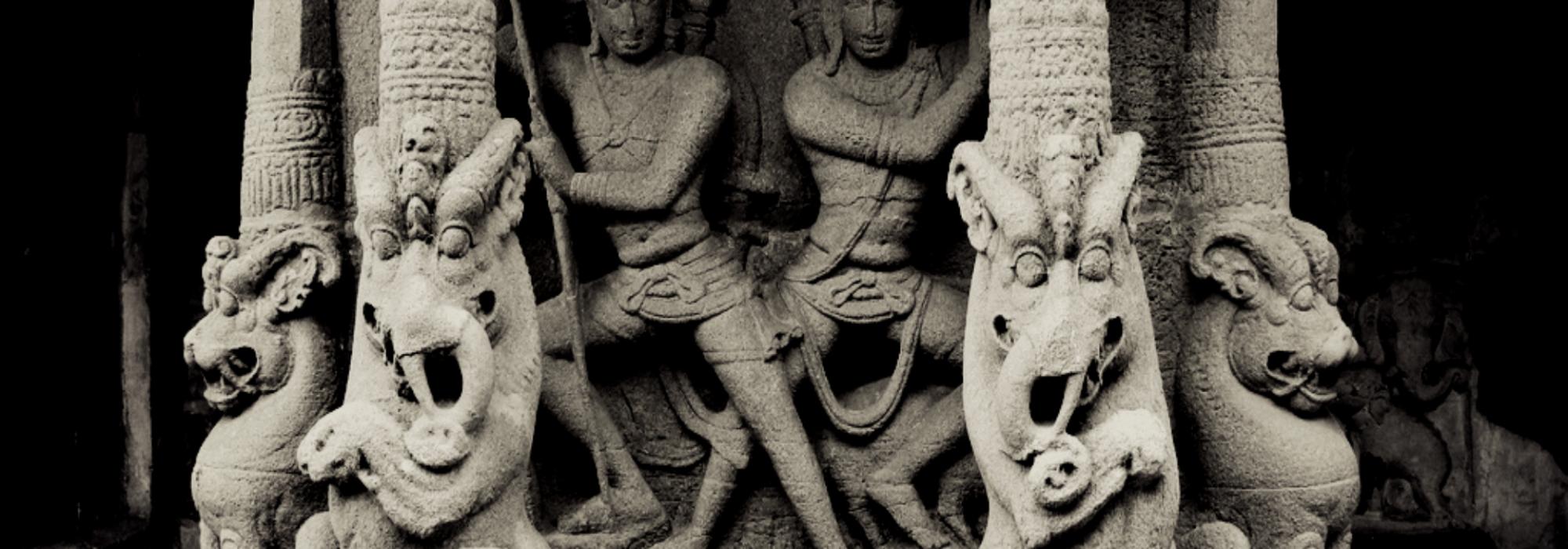श्वशुरगृहनिवासः स्वर्गतुल्यो नराणां
यदि वसति दिनानि त्रीणि वा पञ्च सप्त ।
मधुदधिघृतधाराक्षीरसारप्रवाह-
स्तदुपरि दिनमेकं पादरक्षाप्रहारः ॥
shvashuragrhanivasah svargatulyo naranam
yadi vasati dinani trini va pancha sapta |
madhudadhighrtadharakshirasarapravahah
tadupari dinamekam padarakshapraharah ||
True to his name, the poet Bharavi is the shining sun in the splendid sky of Sanskrit literature. There are poets in Sanskrit who have earned unsullied reputation by a single work; Bharavi tops that list. His Kiratarjuniyam is one among the five great poems of Sanskrit literature. This epic-poem has inspired many poets, starting from Magha.
All married Indian men will surely nod in agreement at the import of Bharavi’s story. What’s the connection between Bharavi and married men, you ask? Read on.
Bharavi (originally Damodara) was a child prodigy. His untainted talent, however, was not enough to earn him praise from his own father. Damodara was presented to the world as a good-for-nothing dullard. With age, he became increasingly embittered by this. It did not take long for it to turn to rage. So much so that he planned to murder his father. One night, when his parents were talking, he decided to eavesdrop. To his surprise, he found out that his father was speaking highly of him. His father had only been following the traditional saying, “Praise your children, but not in their presence.”
This filled Damodara with remorse. He understood his father’s intentions – it was only to ensure he didn’t become complacent. Feeling sorry, he approached his father the next day during the study-hour and asked, “What is the punishment for one who plots his own father’s murder?” His father intuitively grasped where this question came from. He replied, “Six months in his father-in-law’s house.”
Damodara left for his wife’s parents’ home immediately.
During the first few days of his stay, he enjoyed royal treatment. As days rolled on, however, ‘royal’ gave way to ‘real.’ “A beggar lives a better life,” he mused. When he was at his most miserable moment, his thoughts took the shape of this verse.
Stay at one’s father-in-law’s house is heavenly
If it lasts for three, no five, no, a week, maximum
Sumptuous meals guaranteed – with milk, ghee, curd, honey
Overstay by a day – food gives way to footwear
Translated from Kannada by Shashi Kiran
(The original article is from the anthology Kavitegondu Kathe.)















































